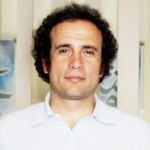Almost all columns across Egyptian newspapers have tackled nothing but the inflammatory situation erupting from the US production of film an offensive to the prophet Muhammad. Many have condemned the chaos and violence resulting from demonstrations in front of the US embassy in Cairo, others dissect the reactions of President Morsy and the Muslim Brotherhood.
Karima Kamal
Towards the two directions
Al-Masry Al-Youm newspaper
Commencing her column with a tweet by Nobel Peace Laureate Mohamed ElBaradei on the importance of esteeming religions, Kamal bases her argument on the conviction that Christianity, as a belief, should not also be assaulted exactly as Islam. She then states that the makers of the film, offensive to Islam, have probably forgotten that prophets constitute a precious human value that should not be touched upon. If Muslims are struck with anger by the production of the abusive film, they should not disregard the frustration of the Christian community when their beliefs are similarly attacked.
Kamal refers to the recent decision of the general prosecutor to add an American priest and nine of Egyptian Christians abroad on the watch lists in Cairo airports. She asks why the official hasn’t taken the same procedures towards appeals presented by many Copts, who have earlier found their religion assailed. The writer also condemns the official statement issued by the Muslim Brotherhood’s Freedom and Justice Party (FJP) that calls upon Egyptians to unify efforts and cut roots of sectarian strife. Wrapping up her column, Kamal states that respecting religions should never materialise as a one-sided approach.
Ahmed Al-Sawy
Let’s start with ourselves
Al-Shorouk newspaper
Muslims who constantly call for a statute that bans all sorts of religious defamation should put themselves in others’ shoes first. In his article, Al-Sawy notes that defenders of Islam have to flip the mirror and ask if their suggested regulations are supposed to safeguard their belief solely. There are many significant questions as to whether Muslims would accept to respect other faiths or not. A Muslim is an infidel according to someone else’s religion, in Al-Sawy’s estimation. Therefore, the best performance for Muslims in order to gain the deference of others is to act respectfully of different religions.
According to the writer, nobody could push the president to issue a law that prohibits defaming religions. Having a regulation as such would entail that no priest would be able to appear on any of his Christian satellite TVs and discuss any Islamic related topic. Parallel to that, extremist Islamic sheikhs will be banned from delving through issues affiliated with other religions. The writer believes that those who call for anti-blasphemy laws should first behave accordingly to their proposals. Concluding his article, the writer suggests that Muslims should start presenting an evident image that respecting religions should start from Islam.
Fahmy Howeidi
What about the Muslim’s dignity?
Al-Shorouk newspaper
Focusing on the debate rising about the American movie, offensive to prophet Muhammad, Howeidi writes that the film is a drop in an ocean of wider attacks to Islam. The writer, who is considerate to the sparking wave of anger hitting Muslims in Egypt, argues that frustration should be expressed in a wiser approach and messages should be sent to the correct audience. He calls upon irate Muslims not to follow the extremist approach of some radical sheikhs as this will lead to more flaring up within the Egyptian society. Howeidi states that one of the controversial aspects related to the debate is the fact that the 25 January revolution, which peacefully ousted the Mubarak regime, has apparently failed to convince Egyptians on the importance of utilising peaceful mechanics for change.
He denounces the violence repeatedly occurring within the location of the US embassy in Cairo and criticises some protestors for replacing the American flag on the top of the building with Al-Tahrir flag, an unknown black-coloured banner. The writer hails Egyptians to calmly react to the offensive movie and keep control over the inflammatory sectarian situation. He hopes that the amount of frustration expressed in reaction to insulting the prophet should equate that coming out if Muslims’ dignities are breached. Wrapping up his column, Howeidi states that the movie reflected an obvious blasphemy, where as its content flinches at freedom of expression. Muslim’s uncontrolled anger can lead to more escalation of violence and their defeat in this battle.
Amr Hamzawy
Where is the voice of reason?
Al-Watan newspaper
The incident of the anti-Islam US movie tempted Hamzawy to inquire about the voice of reason behind all the violence and clashes erupting from the film. He censures the lack of political condemnation towards the growing protestors in front of the US embassy. When political forces, which are used to mixing politics with religion, continue to manipulate the sorrowful feelings of Egyptians, then where is the voice of reason?
The writer states that the absence of logic behind many repercussions is reflected in the way Muslims do not confront ideas behind such movies with valid arguments backed up with reference of historic evidence. Islam has taught Muslims to refrain from violence as much as is practical and substitute fights with lightened speech and negotiations. Hamzawy keeps asking throughout his column, where is the voice of reason if Muslims prefer bloodshed to logic and reasoning. He condemns the talks of ultra-conservative sheikhs attacking Christians abroad. The writer affirms that Egyptian Copts, whether they reside inside or abroad, are innocent of any connections to the anti-prophet Muhammad movie. Finally, the writer asks where the voice of reason is if an incident as such raises the doubts of how patriotic Egypt’s Christians are becoming.
Mahmoud Mosalem
The US and the Brotherhood
Al-Watan newspaper
If analysts have been arguing that the Muslim Brotherhood has sealed secret deals with the American government to reach power, the reaction of the Islamist group towards the offensive film has proven doubts correct, notes Mosalem. The writer states that the largest challenge facing the Muslim Brotherhood today is how to polish their previous attacks on the US and Israel. He condemns the Muslim Brotherhood delegation who visited Israel and claimed that they had not shaken hands with the Israelis.
Turning an eye to President Morsy’s reaction towards the film, the writer praises his condemnation of the violent reactions of Egyptian protestors, stating it wouldn’t lead to any good. As for the reaction of the Muslim Brotherhood, the writer states that they have only limited their censure to the attacks on the prophet and manifested their objection in the form of a protest in front of the US embassy in Cairo. Drawing his column to a close, the writer states that if the official reaction from the presidency comes as firm as possible, Egyptians still await the expected rigid reaction from the Muslim Brotherhood, whom the writer estimates would prefer not to express their frustration against prophet Muhammad’s attacks to weaken ties with the US.





